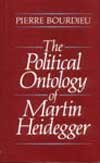
-
 Anglický jazyk
Anglický jazyk
The Fate of Phenomenology
Autor: William Mcneill
It can be easily argued that the radical nature and challenge of Heidegger's thinking is grounded in his early embrace of the phenomenological method as providing an access to concrete lived experience (or "factical life," as he called it) beyond the imposition... Viac o knihe
Na objednávku, dodanie 2-4 týždne
53.64 €
bežná cena: 59.60 €
O knihe
It can be easily argued that the radical nature and challenge of Heidegger's thinking is grounded in his early embrace of the phenomenological method as providing an access to concrete lived experience (or "factical life," as he called it) beyond the imposition of theoretical constructs such as "subject" and "object," "mind" and "body." Yet shortly after the publication of his groundbreaking work Being and Time, Heidegger appeared to abandon phenomenology as the method of philosophy. Why? Heidegger was conspicuously quiet on this issue. Here, William McNeill examines the question of the fate of phenomenology in Heidegger's thinking and its transformation into a "thinking of Being" that regards its task as that of "letting be." The relation between phenomenology and "letting be," McNeill argues, is by no means a straightforward one. It poses the question of whether, and to what extent, Heidegger's thought of his middle and late periods still needs phenomenology in order to accomplish its task-and if so, what kind of phenomenology. What becomes of phenomenology in the course of Heidegger's thinking?
- Vydavateľstvo: Globe Pequot Publishing Group Inc/Bloomsbury
- Rok vydania: 2020
- Formát: Paperback
- Rozmer: 229 x 152 mm
- Jazyk: Anglický jazyk
- ISBN: 9781786608918









 Ruský jazyk
Ruský jazyk 


